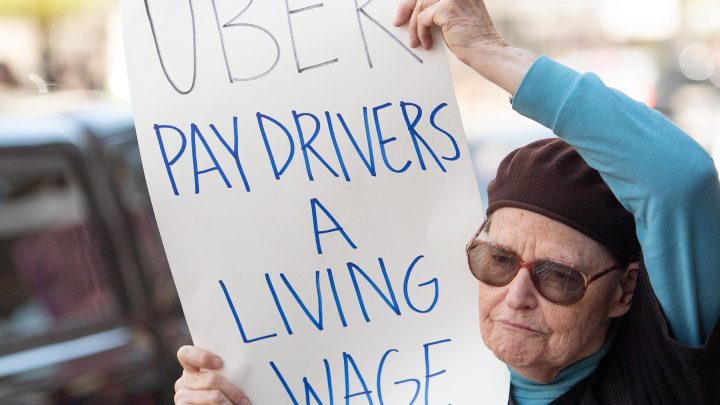
Could the gig be up for Uber and Lyft?

Uber and Lyft, both still unprofitable, announced quarterly earnings this week for the second time since going public. Lyft enjoyed higher-than-expected revenues; Uber’s was lower than expected.
The question of whether these companies will ever turn a profit has come into even sharper relief as the state of California considers legislation that would force Uber and Lyft to classify their drivers as employees rather than independent contractors.
California’s Assembly Bill 5 would codify the findings of a landmark state Supreme Court ruling, resulting in the reclassification of hundreds of thousands of gig workers as employees.
The distinction between employee and independent contractor is an expensive one: Social Security, payroll taxes, unemployment, workers’ comp and a host of other benefits come with employee status.
According to analysis released by Barclays earlier this year, if AB5 were signed into law it would add an estimated $500 million in expenses a year for Uber, $300 million a year for Lyft.
“These are companies that are so busy trying to figure out their business model as it is and then you’re throwing a big wrench into that,” said Paul Oyer, an economics professor at Stanford University.
According to Columbia University business professor Leonard Sherman, there are two things Uber and Lyft need to do approach profitability in the long run: raise prices and contain labor expenses. If the California law adds to driver costs, “you have really attacked any possible path to profitability,” he said.
Whether the bill becomes law or not, it could spur copycat efforts around the country, said UC Hastings law professor Veena Dubal.
“The ramifications are huge,” Dubal said. “It sends the message to other legislators: ‘oh, that’s possible.'”
Uber and Lyft are pursuing alternatives to human labor with driverless cars, said Susan Shaheen, an expert on transportation innovations at UC Berkeley.
“But in terms of wide-scale deployment everywhere in the United States, automation is going to take a long time,” she said.
AB5 has already passed one house of the legislature with a final vote in the other expected in August or September. Big change could be accelerating faster than self-driving cars can keep up.
There’s a lot happening in the world. Through it all, Marketplace is here for you.
You rely on Marketplace to break down the world’s events and tell you how it affects you in a fact-based, approachable way. We rely on your financial support to keep making that possible.
Your donation today powers the independent journalism that you rely on. For just $5/month, you can help sustain Marketplace so we can keep reporting on the things that matter to you.


















